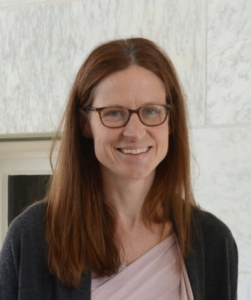
Topic: Is Ethiopia’s volunteer Community Health Worker program empowering rural women or exploiting them?
Biography:
I am a medical anthropologist whose research focuses on the interaction between global health policy and discourse and local health systems.
Currently, I am co-PI of a National Science Foundation-funded project in rural Amhara, Ethiopia. Our focus is on local, materially-impoverished volunteers who serve the rural health system of one of the poorest countries in the world, as well as on the Ethiopian and transnational health officials who rely on and organize these volunteers. Our research goals are to understand how and why global health projects justify the use of volunteer labor in the context of historically unprecedented funding for global health, and how the well-being of volunteers is affected by their service.
Previously, I was the PI of a project funded by the Bill and Melinda Gates Foundation that explored the effects of the Global Polio Eradication Initiative on Primary Health Care and routine immunization. This project involved field research in seven countries (Nepal, India, Pakistan, Nigeria, Rwanda, Ethiopia, and Angola). Information on this study and our findings is available at our study website,
http://sites.middlebury.edu/polio_eradication_impacts_study/
Since 2005, I have been studying the Global Polio Eradication Initiative, a 20 year, 9 billion dollar project aiming to eliminate poliovirus from the world forever—a goal that thus far has proved elusive. My book, Chasing Polio in Pakistan (Vanderbilt University Press, 2010) explores why eradication is so difficult in Pakistan, one of the last countries with endemic polio.
Along with Peter Brown, I am editor of the textbook Understanding and Applying Medical Anthropology (Left Coast Press, 2015).
